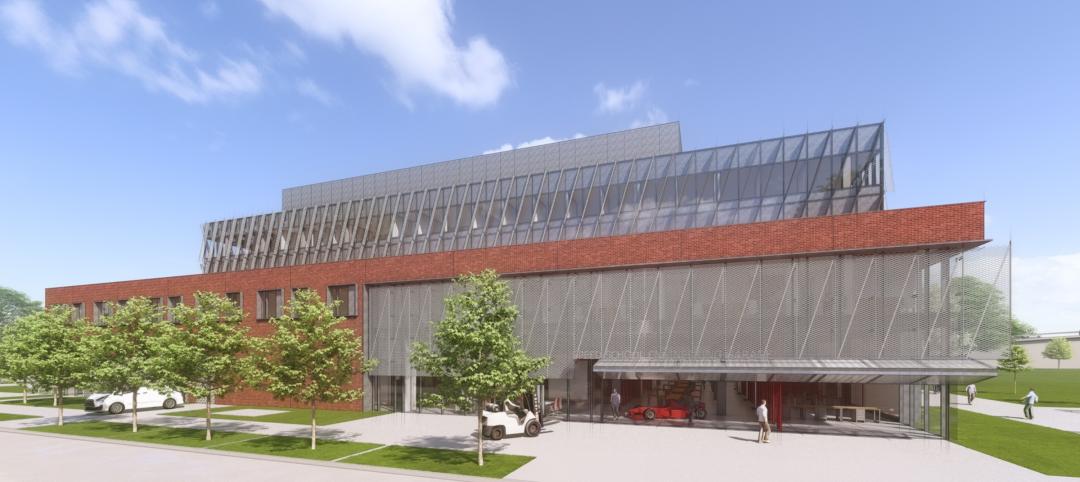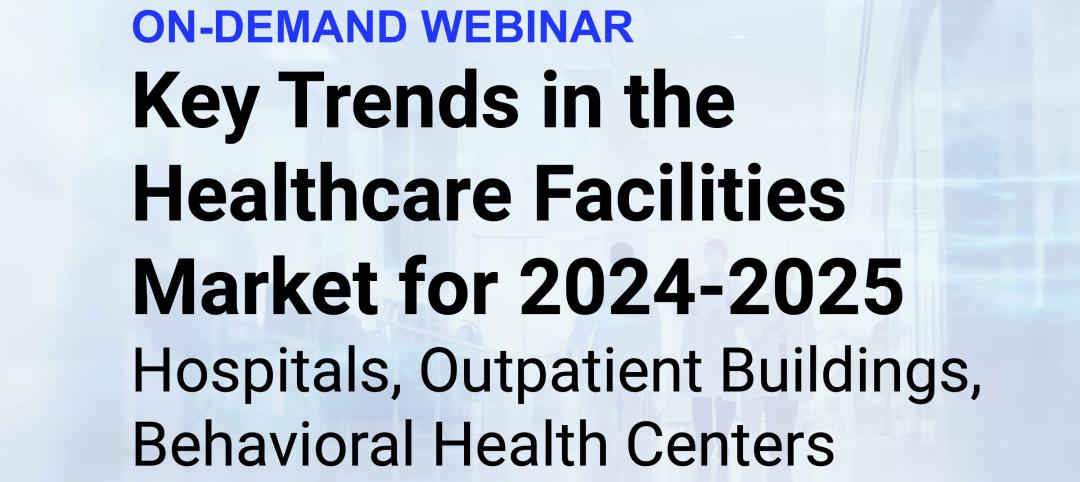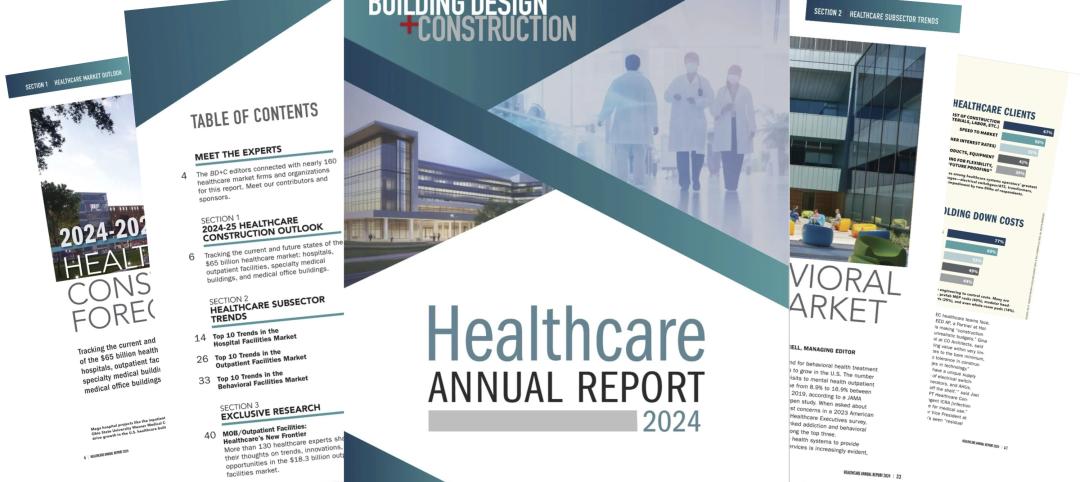Through the first five months of 2015, nonresidential construction spending is having its second best year since the Census Bureau began tracking the metric in 2002.
According to the July 1 release, nonresidential construction spending increased 1.1% on a month-over-month basis and 8.1% on a year-over-year basis, and totals $669.6 billion on a seasonally adjusted, annualized basis. From January to May, nonresidential spending expanded by 7.1%; the only year in which the segment saw faster growth was 2007. Since then, growth over each year's initial five months has averaged only 1.8%.
Perhaps the most notable aspect of May's release was the extensive upward revisions to three of the previous four months' data. January, February and April saw their nonresidential construction spending estimates revised upward by 2%, 1.4% and 2.4%, respectively. The Census Bureau also increased the estimate for May 2014 by 1.4%.
"Though there continues to be discontent regarding performance of the U.S. economy, the current situation should be viewed positively," said Associated Builders and Contractors Chief Economist Anirban Basu. "The U.S. economy has now entered the mid-cycle portion of its recovery, which often represents a period of sustained progress for the average nonresidential construction firm. As with prior months, the industry progress continues to be led by the private sector. Among private segments, manufacturing-related construction was at the frontline of construction spending growth in May."

"Moderate economic growth will allow interest rates to rise gradually, helping extend this mid-cycle," said Basu. "Although it took several years to get to this point of the recovery, contractors will find themselves steadily becoming busier, with margins gradually expanding. The principle obstacle to progress will be skilled labor shortages, which eventually will translate into faster inflation, rising interest rates and the move into the final stage of the current economic expansion."
Nine of 16 nonresidential construction sectors experienced spending increases in May:
· Manufacturing-related construction spending expanded 6.2% in May and is up by 69.5% for the year.
· Office-related construction spending expanded 1.6% in May and is up 24.6% compared to the same time one year ago.
· Lodging-related construction spending was up 3.2% on a monthly basis and 30.6% on a year-over-year basis.
· Lodging-related construction spending was up 5.5% on a monthly basis and 17.6% on a year-over-year basis.
· Spending in the water supply category expanded 0.9% from April, but is down 6.8% on an annual basis.
· Religious spending gained 1.4% for the month and is up 9.2% from the same time last year.
· Highway and street-related construction spending expanded 2.2% in May and is up 2.1% compared to the same time last year.
· Conservation and development-related construction spending grew 8.6% for the month and is up 27.3% on a yearly basis.
· Amusement and recreation-related construction spending gained 5.8% on a monthly basis and is up 29.8% from the same time last year.
· Communication-related construction spending gained 3.3% for the month and is up 15.7% for the year.
Spending in seven nonresidential construction subsectors fell in May:
· Education-related construction spending fell 0.8% for the month, but is up 1.8% on a year-over-year basis.
· Power-related construction spending remained flat for the month, but is 23.5% lower than the same time one year ago.
· Sewage and waste disposal-related construction spending fell 2.2% for the month, but has grown 13.3% on a 12-month basis.
· Public safety-related construction spending fell 7.9% on a monthly basis and is down 11.8% on a year-over-year basis.
· Commercial construction spending fell 1.7% in March, but is up 11.4% on a year-over-year basis.
· Health care-related construction spending fell 0.6% for the month, but is up 3.1% compared to the same time last year.
· Construction spending in the transportation category fell 0.9% on a monthly basis, but has expanded 5.4% on an annual basis.
Related Stories
Codes and Standards | Jul 22, 2024
New FEMA rules include climate change impacts
FEMA’s new rules governing rebuilding after disasters will take into account the impacts of climate change on future flood risk. For decades, the agency has followed a 100-year floodplain standard—an area that has a 1% chance of flooding in a given year.
Construction Costs | Jul 18, 2024
Data center construction costs for 2024
Gordian’s data features more than 100 building models, including computer data centers. These localized models allow architects, engineers, and other preconstruction professionals to quickly and accurately create conceptual estimates for future builds. This table shows a five-year view of costs per square foot for one-story computer data centers.
Sustainability | Jul 18, 2024
Grimshaw launches free online tool to help accelerate decarbonization of buildings
Minoro, an online platform to help accelerate the decarbonization of buildings, was recently launched by architecture firm Grimshaw, in collaboration with more than 20 supporting organizations including World Business Council for Sustainable Development (WBCSD), RIBA, Architecture 2030, the World Green Building Council (WorldGBC) and several national Green Building Councils from across the globe.
University Buildings | Jul 17, 2024
University of Louisville Student Success Building will be new heart of engineering program
A new Student Success Building will serve as the heart of the newly designed University of Louisville’s J.B. Speed School of Engineering. The 115,000-sf structure will greatly increase lab space and consolidate student services to one location.
Healthcare Facilities | Jul 16, 2024
Watch on-demand: Key Trends in the Healthcare Facilities Market for 2024-2025
Join the Building Design+Construction editorial team for this on-demand webinar on key trends, innovations, and opportunities in the $65 billion U.S. healthcare buildings market. A panel of healthcare design and construction experts present their latest projects, trends, innovations, opportunities, and data/research on key healthcare facilities sub-sectors. A 2024-2025 U.S. healthcare facilities market outlook is also presented.
K-12 Schools | Jul 15, 2024
A Cleveland suburb opens a $31.7 million new middle school and renovated high school
Accommodating 1,283 students in grades 6-12, the Warrensville, Ohio school complex features flexible learning environments and offers programs ranging from culinary arts and firefighting training to e-sports.
MFPRO+ News | Jul 15, 2024
More permits for ADUs than single-family homes issued in San Diego
Popularity of granny flats growing in California
Codes and Standards | Jul 15, 2024
New York City code update changes definition of a major building
Changes affecting how construction projects in New York City are permitted will have significant impacts for contractors. On Dec. 11, the definition of a major building in the city’s code will change from 10 stories to seven, or 75 feet. The change will affect thousands more projects.
Adaptive Reuse | Jul 12, 2024
Detroit’s Michigan Central Station, centerpiece of innovation hub, opens
The recently opened Michigan Central Station in Detroit is the centerpiece of a 30-acre technology and cultural hub that will include development of urban transportation solutions. The six-year adaptive reuse project of the 640,000 sf historic station, created by the same architect as New York’s Grand Central Station, is the latest sign of a reinvigorating Detroit.
Healthcare Facilities | Jul 11, 2024
New download: BD+C's 2024 Healthcare Annual Report
Welcome to Building Design+Construction’s 2024 Healthcare Annual Report. This free 66-page special report is our first-ever “state of the state” update on the $65 billion healthcare construction sector.

















